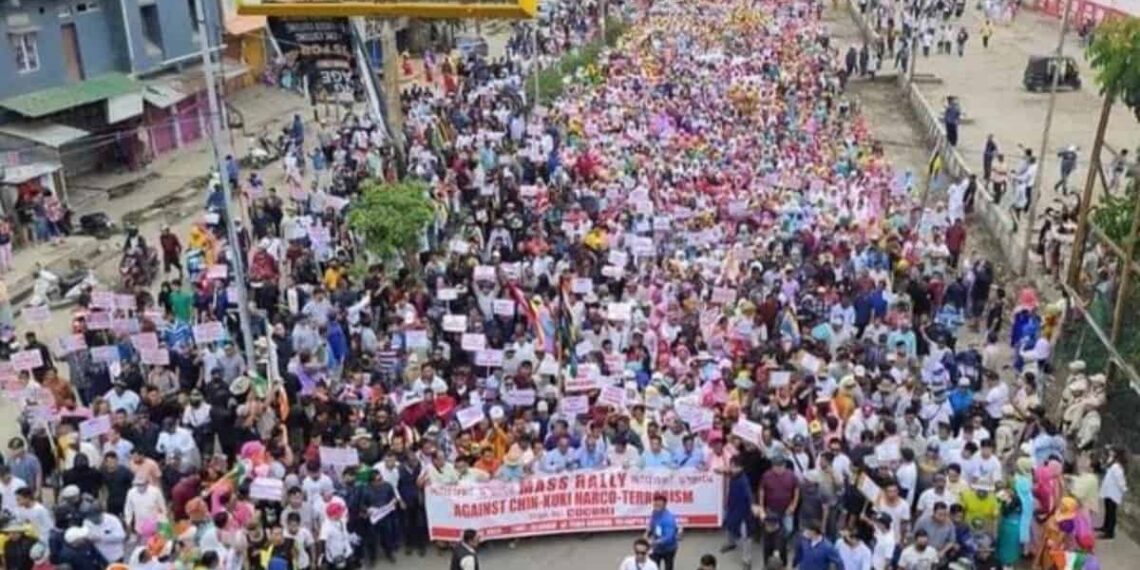IMPHAL: The Coordinating Committee on Manipur Integrity (COCOMI), the apex body of the Meitei community, on August 17 has vehemently opposed the proposed talks between the Centre and Kuki militant outfits. The COCOMI emphatically called on the government to refrain from engaging in dialogue with these groups, asserting that such actions could jeopardise the state’s stability and the interests of its original citizens.
The committee said that the Centre’s apparent plan to engage with the “umbrella organisations of immigrant Chin Kuki Narco Terrorists” – specifically the United Peoples’ Front (UPF) and Kuki National Organisation (KNO) – raise questions about the government’s intentions and its willingness to prioritise the interests of its own citizens.
Expressing deep concern, the committee, in a released statement, asserted that Manipur’s indigenous citizens should not bear the burden of hidden agendas that may involve immigrant groups. The organization expressed confidence in the region’s strength and strategy to safeguard its boundaries and national interests.
COCOMI warned that engaging with the Chin Kuki Narco Terrorists could intensify tensions and distress among the population, many of whom have already been displaced due to the turmoil. The potential talks would mark the second round of discussions between the government and militant groups, following the contentious call for separate administrations on July 26.
Highlighting the intricate dynamics, COCOMI reminded that earlier this year, 10 Kuki MLAs urged the Central government for a similar administration following external aggression from the Chin Kuki Narco terrorists. COCOMI went on to emphasise that key Kuki militant leaders, Thanglianpao Guite and PS Haokip, hold Myanmar citizenship.
With earnest urgency, COCOMI’s statement implored the Central government to reconsider its approach and not engage in talks with these immigrant groups. The committee emphasised that any decisions made should adhere to the rule of law and not equate the rights of foreigners with the rights of India’s original citizens.















